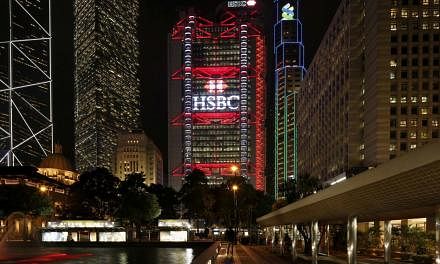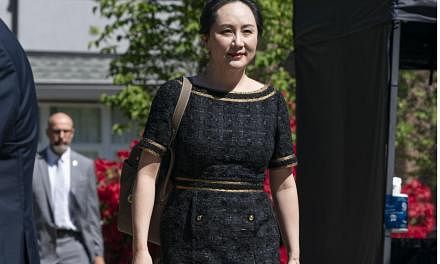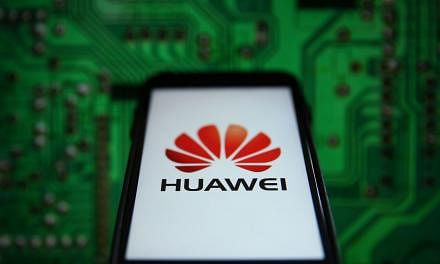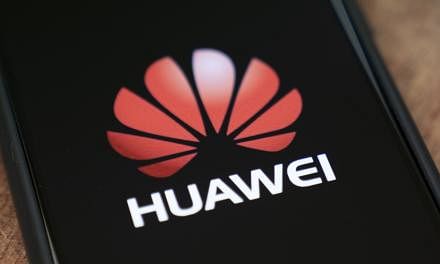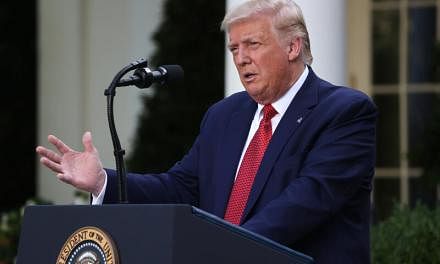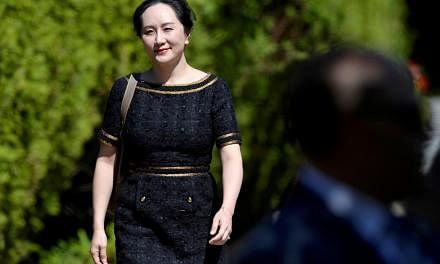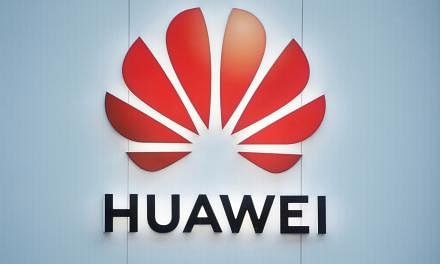WASHINGTON • American technology firms have resumed selling certain products to Huawei Technologies after concluding there are legal ways to work with the Chinese telecommunications giant, in spite of its inclusion on a US blacklist.
Micron Technology, the largest US maker of computer memory chips, said it had started shipping some components to Huawei after its lawyers studied export restrictions. Intel, the largest microprocessor maker, has also begun selling to Huawei again, said a source.
It is not clear how many other suppliers have reached the same conclusion.
Last month, the United States' Commerce Department added Huawei to an "entity list", a move designed to bar the Chinese firm from buying American components and software.
The Trump administration said Huawei helps Beijing in espionage and represents a security threat - charges that Huawei denies.
Officials at the Commerce Department and the White House are frustrated that firms have resumed Huawei shipments, said another source.
The chipmakers are taking advantage of certain exceptions to the export restrictions. Even when companies have headquarters in the US, they may be able - through ownership of overseas subsidiaries and operations - to classify their technology as foreign, according to Cross Research analyst Steven Fox.
If less than 25 per cent of the technology in a chip originates in the US, for example, it may not be covered by the ban, under current rules.
"It took them weeks to figure this out," Mr Fox said. "What they did was look at the laws and the rules and applied them to their business."
Micron has operations all over the world - some added through acquisitions - and it owns plants in Singapore, Japan and Taiwan. Intel has factories in China and Ireland, and a major design centre and production facility in Israel. The company declined to comment.
Companies can legally continue some shipments to Huawei under what is known as the "de minimis" rule, said Mr Kevin Wolf, former head of the Commerce Department's export control section.
"Commodities made overseas from US-origin technology are only subject to the entity list prohibitions if the technology and commodity are sensitive items controlled for national security reasons," Mr Wolf said. "But a commodity made overseas from less sensitive US-origin technology is not subject to the entity list prohibitions."
The de minimis threshold is 25 per cent, according to the Commerce Department.
National security hawks in the Trump administration thought that inclusion on the entity list would ratchet up pressure on Huawei, but they did not understand or misinterpreted the existing rules. They did not fully grasp the limits of export controls in constricting supply chains that reach deeply into China.
Micron chief executive Sanjay Mehrotra, in a conference call discussing his firm's earnings, declined to explain Micron's analysis.
US chipmakers need to comply with new rules, while navigating the intricacies of doing business in China, an increasingly crucial market. More than 60 per cent of the US$470 billion (S$637 billion) of chips sold last year went through China.


